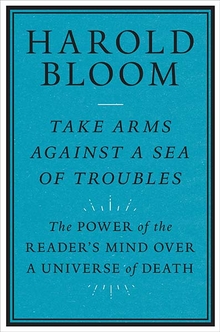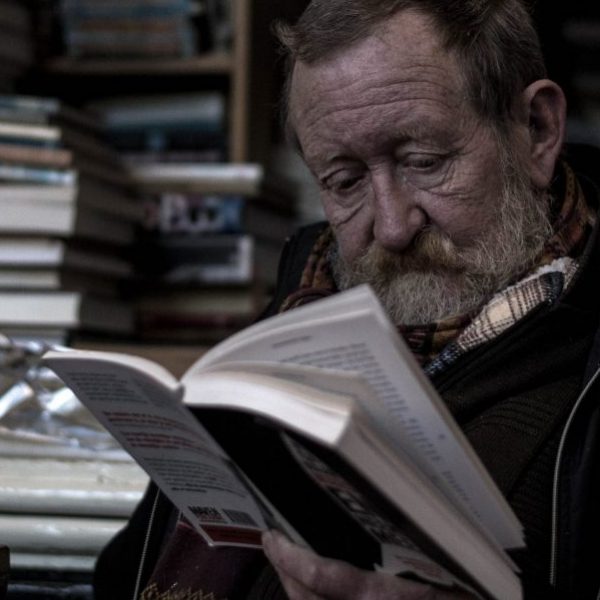Deep Reading to Stay Alive
Harold Bloom—
In what sense does deep reading augment life? Can it render death only another hoyden? Most literary representations of death do not portray her as being particularly boisterous. Why “her”? Is it the long cavalcade associating death and the mother? I have learned from Epicurus and Lucretius what Epicurus stated so pungently in his letter to Menoceus (late fourth century BCE):
“So death, the most terrifying of ills, is nothing to
That does not abate my sorrow for the beloved dead, or requite my loneliness for my many departed friends, yet it holds off any fears about my own vanishing. I do not want to fall yet once more and break another hip or leg, or even a rib, but a Keatsian ceasing on the midnight with no pain would not trouble me. When I say to myself and to others that reading helps in staying alive, I am aware that I am being metaphorical. Returning to Dante or Milton will not prolong my existence by a single minute, whereas endless exercise almost certainly will. But if life is to be more than breathing, it needs enhancement by knowledge or by the kind of love that is a form of knowledge.
My model for reading is always Samuel Johnson, who devoured books as he did his meat, possibly remembering his early years of privation in London, when he walked the streets with the poet Richard Savage, neither of them knowing where the next meal or bed or book was to be found. There is a marvelous passage in Boswell where, before dinner, the Grand Cham seizes a book on a recent Swedish revolution and devours it.
When a book arrives in the mail, I emulate Johnson as best I can and devour it instantly. When I was a child I had no money to buy books, and now, in advanced old age, my wife gently complains that a deluge of volumes has taken over our house. Order, despite her best efforts, has been so disrupted that I cannot locate the book I need at just this point: Angus Fletcher’s Colors of the Mind (1991), his conjectures on thinking in literature. Angus taught me that staying alive is augmented by thinking in metaphors, as Dante, Milton, and, above all, Shakespeare think. For Fletcher, as for W. B. Yeats, the imagination was a holy fire, from which sages emerged to be the singing-masters of our souls.
Angus was descended from Highland Scottish nobility, and he loved the vistas of the Highlands. We were never there together, but I recall taking a phone call from him one early autumn when I was staying at Inverness. It was in the late 1970s and I had lectured on Walt Whitman at Inverness College, which I think is now part of the University of the Highlands and Islands. The students were receptive and the small city seemed a happy place, the horizon appearing endless. After I took Angus’s call—he had a tendency to speak at length over the phone—I brooded about what it means to think metaphorically before I fell asleep.
That brooding has continued these last forty years and I think I approach some resolution.
From Take Arms Against a Sea of Troubles by Harold Bloom. Originally published by Yale University Press in 2020. Reproduced with permission.
Harold Bloom (1930–2019) was an American literary critic and Sterling Professor of the Humanities at Yale University. His books include The Anatomy of Influence, The Shadow of a Great Rock, and Poetry and Repression.
Further Reading:



























